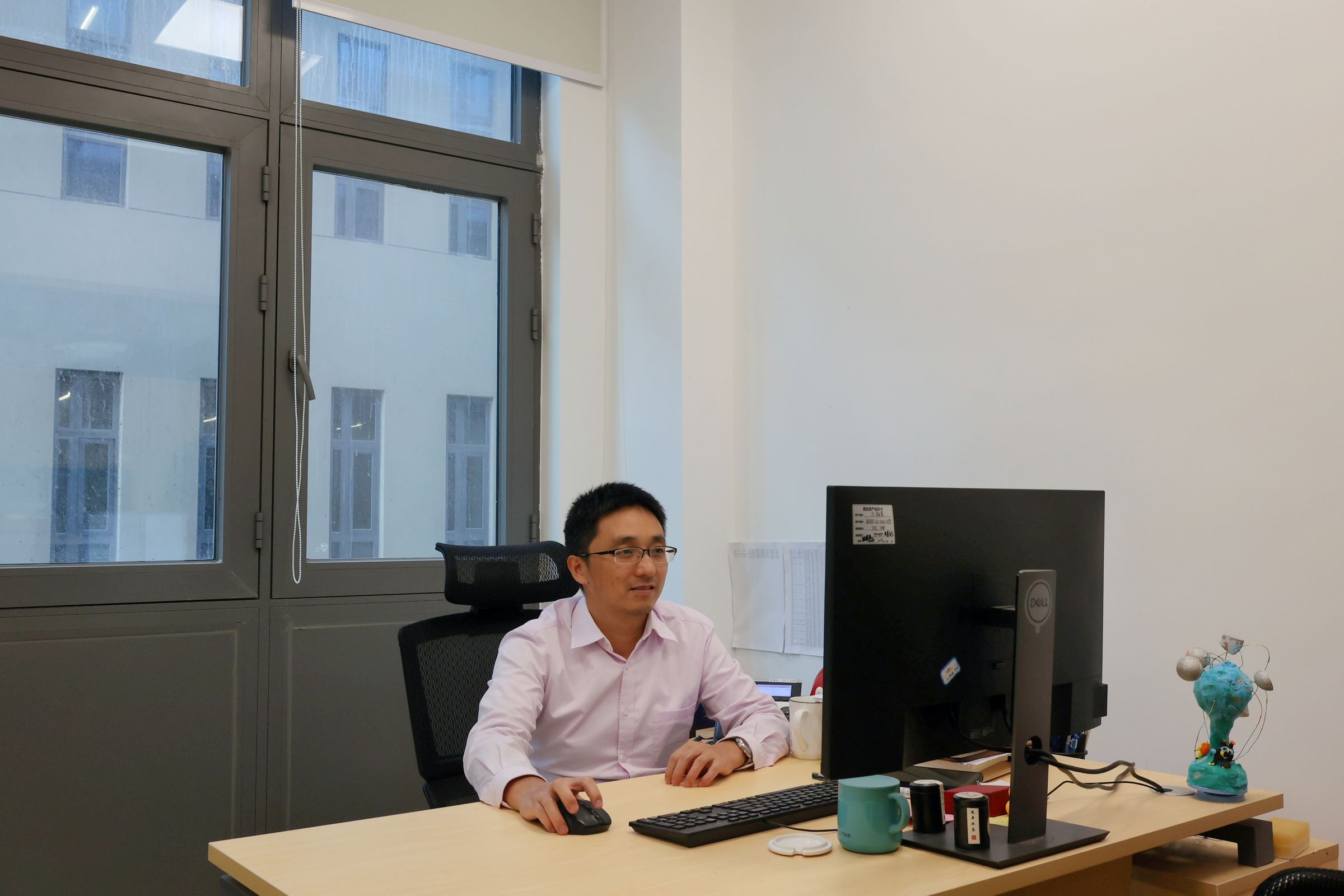Academic Exchange
Dr. Zhang Lianmin: A Journey from Mathematical Theory to Management Science and Engineering
Dr. Zhang Lianmin is currently a Senior Research Scientist at the Shenzhen Research Institute of Big Data, specializing in data-driven operations management within the smart city, transportation, and logistics laboratory. His transition from an associate professor at the School of Engineering Management at Nanjing University to a prominent role in a leading research institute reflects a clear vision for his academic and career path. "Imagine the life you want five or ten years from now; this can often help you make your current choices," he reflects on his decision-making process.

Dr. Zhang emphasizes that logistics and supply chain management are core issues in enterprise production operations, impacting every aspect from raw material procurement to production, distribution, and sales. By leveraging the data accumulated by medium and large enterprises during their operational processes, big data optimization and analysis can facilitate the rational allocation of resources, ensuring their most effective utilization. He believes this field holds promising applications, especially given the government’s recent policies aimed at cost reduction and efficiency enhancement, encouraging the use of technological methods to optimize costs and enable high-quality industrial digitalization.
Dr. Zhang has maintained a long-term interest in projects related to enterprise digitalization within this domain. He notes that in recent years, data-driven decision-making and operational optimization have become trends, with major companies like Midea, JD.com, and Cainiao pushing forward with digital reforms. For instance, JD.com, one of the early adopters of digitalization, collaborated with academic teams to explore data-based smart pricing models, breaking away from traditional methods where business personnel manually adjusted SKU prices based on experience.
"The value of data needs to be excavated. Many enterprises possess vast amounts of data yet seek reasonable ways to utilize it, leading them to collaborate with universities and research institutions," Dr. Zhang explains. The smart city/transportation/logistics laboratory he is part of has established partnerships with several leading companies, such as collaborating with Huawei on "Intelligent Decision-Making and Scheduling Optimization for Subcontracting" and working with China Railway on "Deployment and Allocation of Railway Emergency Resources," as well as partnering with Cotton Era for "Product Demand Forecasting and Cost-Volume-Profit Model Optimization."
Not only does Dr. Zhang stay abreast of the latest developments, but he also adheres to the principle of "not falling behind" in academic research. "Often, academic research is ahead of its time; while it may not lead to immediate industrial applications, it continuously supports the development of new technologies while bringing academic elegance," he notes. He is the principal investigator for a National Natural Science Foundation project focused on "Inventory Routing Decision Optimization Based on Distributionally Robust Optimization and Service Level Objectives." His recent paper, “Inventory Routing Problem under Uncertainty,” has been accepted for publication in the top international journal *Operations Research*. This paper constructs a service-level-oriented inventory routing optimization model, enriching and advancing the theoretical framework of inventory routing with significant practical implications. Additionally, his co-authored paper, "The Value of IoT in the Senior Meal Delivery Service System," won first prize at the 2022 China Logistics Academic Annual Conference.
For Dr. Zhang, the path of academic research has long been a firm choice. He has had a clear understanding of his preferences and suitability for research since his university days. "Looking back now, I realize that my initial choice was indeed correct." He often receives inquiries from students considering pursuing mathematical sciences, and he is more than willing to provide guidance and directional advice. He believes that with effort, one can always meet their aspirations: "Think about the life you want to lead in five or ten years. Once you’ve figured that out, work hard towards it; don’t be afraid of competition."
Two years ago, Dr. Zhang joined the Shenzhen Research Institute of Big Data, where he feels a vibrant atmosphere. The rapidly developing city of Shenzhen offers a favorable business environment and numerous opportunities for in-depth engagement with enterprises. Working at The Chinese University of Hong Kong, Shenzhen, allows him to experience an international academic atmosphere firsthand and collaborate with world-class scholars, providing him with immense benefits.




